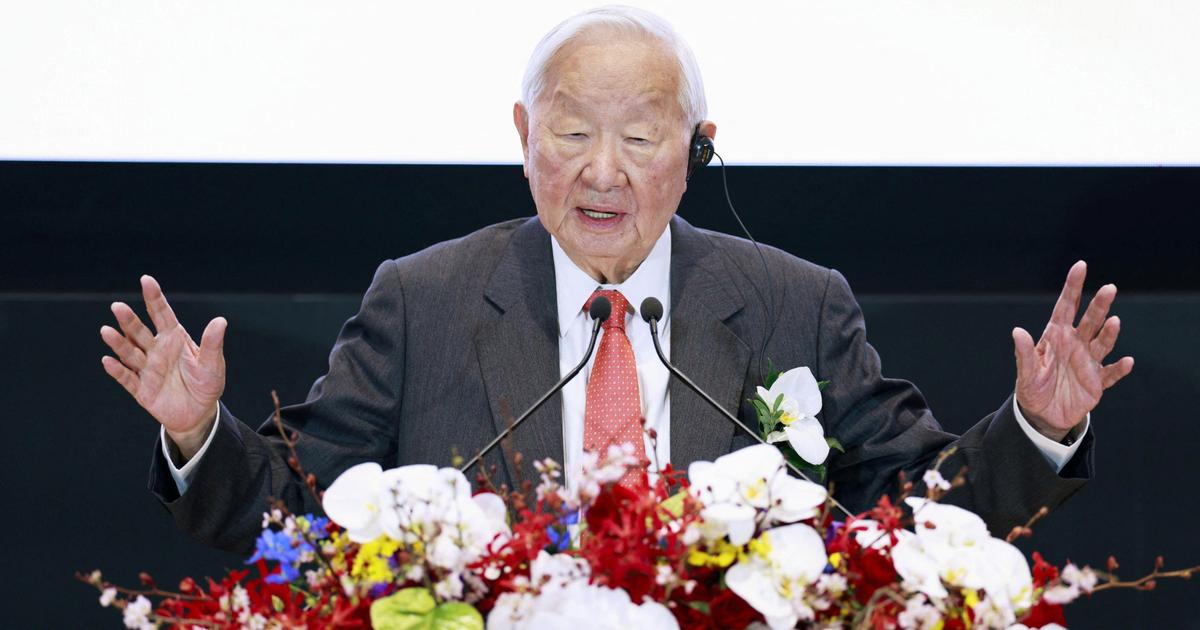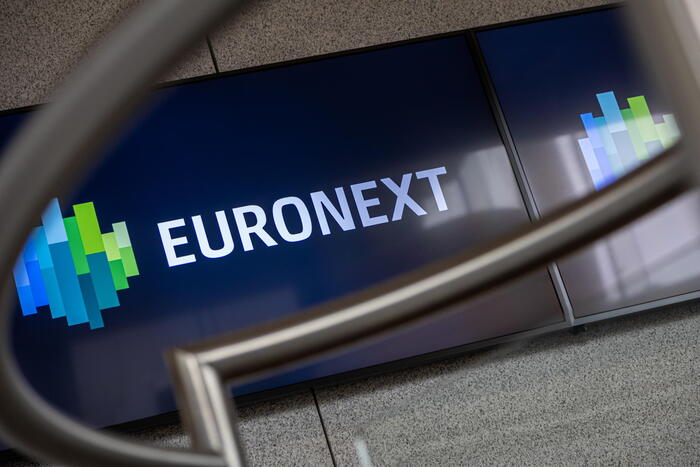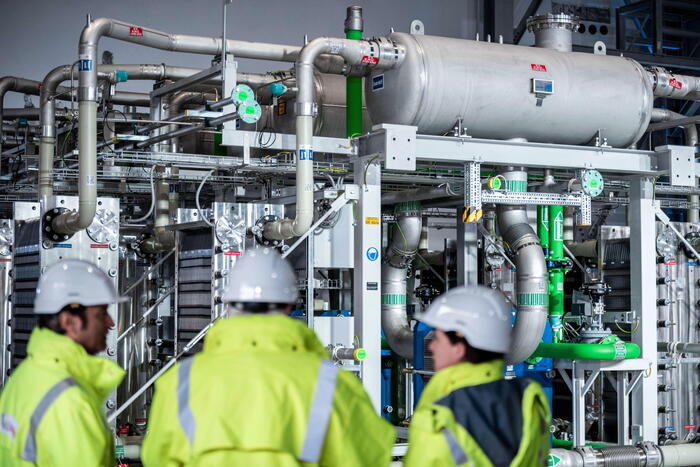The recently opened Infineon chip factory in Carinthia is a multi-billion dollar undertaking.
The Munich group, however, is plagued by other problems.
Villach - When Siemens started manufacturing semiconductors in Villach 51 years ago, it was semi-skilled women who soldered diodes under the microscope. Diodes are the simplest variant of semiconductors - they allow electrical current to pass in one direction and block it in the other. They can't do more than that. The less complex components were needed primarily in many electronic devices, from portable radios to tube color televisions. And production in the then structurally weak south of Austria * was comparatively cheap - and the jobs there were welcome.
Villach became the extended workbench of the electrical giant from Munich.
On the world market, production in Carinthia was also ranked below.
When a new production hall - six floors the size of two football pitches - was opened on Friday on the same site in the factory of the former Siemens semiconductor subsidiary Infineon, the simple beginnings were barely noticeable.
Infineon opens plant in Austria: "Largest investment in Austrian industrial history"
Sabine Herlitschka, CEO of Infineon Austria, spoke of the largest investment in Austrian industrial history. The investment amounts to 1.6 billion euros. 1000 million, of which are public grants from Austria and the EU. No wonder that Chancellor Sebastian Kurz * came to the opening with three ministers in tow. The head of government spoke of an “absolute success story”. "Without Infineon, Carinthia would be a developing country," say some observers.
Alone the trucks that delivered the concrete for the new hall would form a column that stretches from Villach to Munich, says CEO Reinhard Ploss.
The mass of building material makes perfect sense, because even the smallest vibration would massively impair the quality of the tiny components now being manufactured in the hall.
Quality killers would also be a barely perceptible number of carelessly brought in dust particles.
The few visitors to the clean room, which can only be reached through locks, are clad in protective equipment specifically for this purpose.
+
Clean room in Infineon's new chip factory in Villach.
© Infineon / dpa
But when production runs smoothly, people are a marginal phenomenon anyway.
In a sophisticated rail system under the ceiling, transport gondolas bring containers with 25 wafers each, i.e. discs made of silicon or other advanced semiconductor materials, fully automatically to the individual production stations, where they are processed - also fully automatically.
In the end, the disc the size of a long-playing record resulted in hundreds or even thousands of often tiny chips that are only half as thin as a human hair.
The wafers are then sawed up and the wafers are taken to other plants, where they are equipped with the typical metal feet and plastic coatings and become the beetle-shaped chips that can be seen in almost every electrical device today.
Infineon Villach location: Over 4,000 employees
Little human work in the hall, but a lot around it.
The Infineon site in Villach has 4517 employees.
Half of them have a university degree, the rest are well-trained skilled workers.
There are also 80 mechatronics apprentices.
Not only Carinthia benefited from Infineon, Infineon would not be where the group is today without Carinthia.
The extended Siemens workbench has become Infineon's global competence center for power semiconductors - with its own research and development department with 1960 employees.
The hard-to-manufacture 300-millimeter thin wafers were developed here to make them ready for production.
Unlike the chips that are painfully lacking in the auto industry at the moment, the microcontrollers, which are actually small computers, the products from Villach are control elements that are needed wherever current and electrical voltage have to be converted. And these are more and more products: power supplies of all kinds, but also charging spaces for electric cars, the electric cars themselves, railways, every wind turbine, every solar system.
High-tech made in Austria, which like microcontrollers are getting smaller and more powerful.
Not only because more of them can be accommodated in increasingly smaller devices, but above all because the thinness of the semiconductor layer is crucial for efficiency.
This is how you save energy.
Especially in huge data centers, just one of which creates a climate footprint that is as large as that of all global air traffic.
A saving of one percent is a considerable contribution against global warming.
Infineon Austria: Companies lack staff
A lot has changed at the Villach semiconductor site. But one thing is not. The shortage of staff. In the days of Siemens, he mainly performed in the cold season because the employees in ski tourism found better-paid jobs. This is no longer a problem today. But Infineon Austria also suffers from a shortage of skilled workers - despite intensive cooperation with universities, from Vienna to Milan or Padua. Infineon Austria is complaining about 250 vacancies that are difficult to fill.
And something else has remained the same: the products, like the diodes of the time, are comparatively cheap. That is also the problem that German industry has to grapple with. Because investing billions in the production of cent items is only worthwhile if high and calculable stable sales ensure profitability. The auto industry, which has comfortably established itself in the ability to ramp up and down its orders from suppliers at will, has fundamentally miscalculated.
The chips that had been canceled in the foreseeable Corona * downturn were already gone when they were needed again.
And new capacities take time.
Although the plant in Villach was able to start operation in a construction time of a good three years, which is record-breaking by European standards, it will still take several years before production there, in which additional machines can only be installed step by step, will run at full capacity.
(mp) * Merkur.de is an offer from IPPEN.MEDIA
List of rubric lists: © -



/cloudfront-eu-central-1.images.arcpublishing.com/prisa/GDO6WKTQ7RFXX2LM5LUOSIODT4.jpg)











